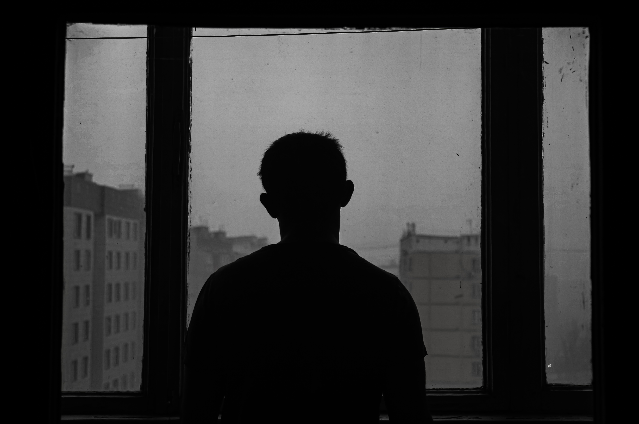Background of the Case
Aftab Amin Poonawalla had been charged in connection with the horrifying Shraddha Walker murder case, and his case had shocked the nation. Alarms had been raised by the crime's extreme cruelty; Aftab (28), who was held in custody by Delhi police, is accused of killing Shraddha in May of this year and decapitating her body into 35 parts before scattering them over the city more than a number of days.
Shraddha and Aftab had interacted through the dating app Bumble. According to Shraddha's friends, the relationship had changed from being "pleasant" in the beginning to be violent, with Shraddha admitting to her friends that she was afraid of Aftab. It is also to be seen that there are some warning signs of dating a person especially if a person is moving forward with things very quickly.
Some red flags for dating on online platforms

Compulsive liars try to persuade their partners too swiftly by making commitments that they can't keep. Even before the encounter, these people make promises if you are connecting through dating apps. Jumping into things too quickly could therefore be a sense that thoughts are going too rapidly and that it is time to practise care and caution, also further putting the interaction on hold.
Lower self-esteem makes one doubt

Low self-esteem causes us to tolerate violence and mistreatment from others. We frequently ask ourselves: What is it about me that makes it possible for people to treat me badly? We only consider the reasons behind the other person's actions, our own mistakes, and what else I can do to win over that person. We never consider the partner's behaviour to be morally objectionable or unjustifiable. This might be a warning sign that we are recognising if someone has verbally abused us when we have tried to set boundaries.
Whether a live-in relationship had been legally recognised?
In India, there is no unified civil code, hence marriages are frequently governed by the personal laws of each individual. Although the law does not explicitly acknowledge the idea of live-in partnerships, Indian courts have repeatedly maintained the legitimacy of such relationships while separating morals and the law and bearing in mind constitutional values.
People in India now have a number of essential rights and freedoms according to the constitution. Indian people enjoy a fundamental right to freedom of speech and expression under Article 19 of the Indian Constitution, as well as the freedom to live and settle anywhere on Indian territory. Aside from this, everyone has a right to life under Article 21 of the Constitution. The aforementioned rights and freedoms regulate one's desire to live with a partner of their choice and develop a sexual relationship. However, it is important to remember that these freedoms and rights are not absolute.
The Indian Supreme Court noted in Lata Singh Vs. State of U.P. & Anr. , that although a live-in relationship between two consenting adults of heterogenic sex may be viewed as morally wrong, it does not constitute an offence (with the observable exception of "adultery"). Noteworthy is the subsequent decriminalisation of adultery by the Supreme Court in Joseph Shrine's case.
The Supreme Court noted in Indra Sarma vs. V.K.V. Sarma (2013), that live-in or marriage-like relationships are neither sins nor crimes, despite being socially unwelcome in this country. It is quite personal to decide whether to get married, not get married, or be in a heterosexual relationship.
The Supreme Court ruled in Payal Sharma v. Nari Niketan that a man and woman could live together voluntarily even without getting married. The Court defined the line between law and morality, stating that although live-in relationships are viewed as immoral by society, they are neither unlawful nor crimes. Cohabitation and maintaining a live-in relationship between two people are not crimes. It was made clear that although they are socially unacceptable in some regions of India, living together is neither wrong nor sinful.
In Badri Prasad v. Director of Consolidation, the Supreme Court affirmed the validity of a couple's 50-year marriage. The bench declared that there was substantial proof in favour of wedlock because the couple had stayed together for a considerable amount of time. As well as the law supported the validity of their union. In addition, it is quite difficult for any third party to reject such an assumption.
Violence in live-in relationships

The Supreme Court ruled that a woman who lives with a man can be recognised as an aggrieved party under Section 2 of the Protection of Women from Domestic Violence Act (2005). In order to be accepted by society, two people in a live-in relationship should represent themselves as couples.
They must be eligible for marriage under law and of legal age. A couple must have lived together freely and identified as spouses for a considerable amount of time. According to this part, they had to share a home and lived together.
It is evident from prior rulings that a live-in relationship is not illegal and in no way gives any of the persons engaged the authority to verbally or physically mistreat their partner. Adults might decide to share a home before being married or do so instead of getting married. What gives society the right to judge adults for their decisions while the supreme court does not?
Why is it difficult for abused women to leave a toxic relationship?
Shraddha Walkar's image with injuries on her face and swollen eyes, allegedly sustained in violent relations with her live-in partner and suspected killer Aaftab Poonawala, remains to shock and horrify people while also raising concerns about the degree of the torture she underwent.
Shraddha moved to a new city in order to be with Aaftab, leaving her family, friends, and home behind. She refused the advice from her parents and friends. She decided to keep her feelings inside instead of seeking support when her live-in relationship became hostile. Perhaps the risks were too high because one of these abusive outbursts led to her being hospitalised. Additionally, if she had ever gained the confidence to challenge Aaftab, her willpower would have crumbled in the face of his coercion and questioning.
According to Shraddha's friends, she constantly worried about losing her life. It was a breakdown in understanding. Approximately 58 percent (47,000) of the 81,000 women and girls who died in 2020 died at the hands of an intimate partner or family member, according to data released by the United Nations Office on Drugs and Crime (UNODC) in November 2021. This equates to one woman or girl dying every 11 minutes at home.
Shraddha had a good education and was self-sufficient. Why do young, successful women like her have to put up with violent partners is the concern. A society that views "adjusting" and "compromise" as feminine qualities and grants men the freedom to act otherwise is the cause of the problem. Since she had abandoned her family, Shraddha had even more reason to put up with the relationship because she was without a place to go with no one to resort to. Many mistreated women have a strong tolerance mentality, which ultimately makes them the sufferers of it.
The concern of victim-shaming, which occurs almost always in our culture since it is set up to view events from a male point of view, is another reason why a woman struggles in silence. A woman who has experienced physical or emotional abuse at the hands of a man becomes an easy target for social analysis. All of a sudden, the public feels obliged to discuss her, pass judgement, exaggerate her story, and feed the media narrative. Furthermore, society tends to react negatively when a woman is young, carefree, outspoken, or non-conformist. Her plight is attributed to her choice to violate social norms and practices.
The fact that help is unsure, difficult to get, or untrustworthy is another big barrier to reporting abused women. There is also a major shortage of knowledge on where to get assistance. Women continue to be in abusive relationships since there are no institutionalised support structures in place. If a woman decides to come forward about being mistreated in her personal space by persons close to her, she runs the risk of gaining sympathy from the general public. Parents in rural India and sizable portions of the country's semi-urban areas prefer that their daughters "adjust" to avoid the social stigma associated with leaving an abusive partner or filing for divorce.
Sensitivity and a comfortable setting for meaningful dialogue are required to motivate women to leave their toxic relationships. An environment that is willing to be empathic, open, and accepting of disturbed souls.
Safety precautions that one can take
People frequently offer you warning signs when they aren't psychologically secure enough in partnerships. But because we were raised in a society that trained us to put up with a lot, especially women, they tend to ignore things. There are moments when we feel that things are not always black or white. We wish to support the other person since we are aware of their pain and problems. Although the sentiment is admirable, something seems off. Your continued presence won't be of any assistance to someone who has caused you physical or emotional harm.
They will become more at ease with their (wrong) behaviour as a result, which will motivate them to behave inappropriately once more. The main thing you can do is to leave, both for them and for yourself. They might then be compelled to admit their faults and ask for support or counselling.
Conclusion
Even in the Bhagavad-Gita, Shri Krishna ji says that in a family; members should work together to help each other and live life peacefully together. However, if it is unfriendly or not beneficial to spiritual growth, family life should be abandoned. Family members who are in material ties think about how they may make others feel good. So many homes are broken up and the kids don't have a healthy family structure because the husband searches for another woman when the wife doesn't fulfil his needs or vice versa. In the end, the family members are thinking about how they can benefit from one another rather than how they can serve one another. A strong spiritual purpose is served by a family's spiritual connection, which is why it is so crucial for all of the family members to work jointly to grow spiritually.
Presently, where couples are either in a live-in relationship or even if they are married. If either of the partners is being abusive in a relationship then there is no point in staying with a person in a toxic relationship. Instead, one should better separate and focus on future goals in life. Also, it is necessary that some institutionalised centres be made that can better empathise as well as sympathise with the conditions of a person facing domestic violence.
. . .
References:


